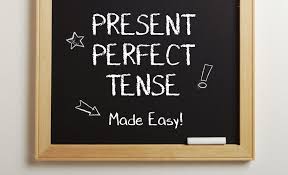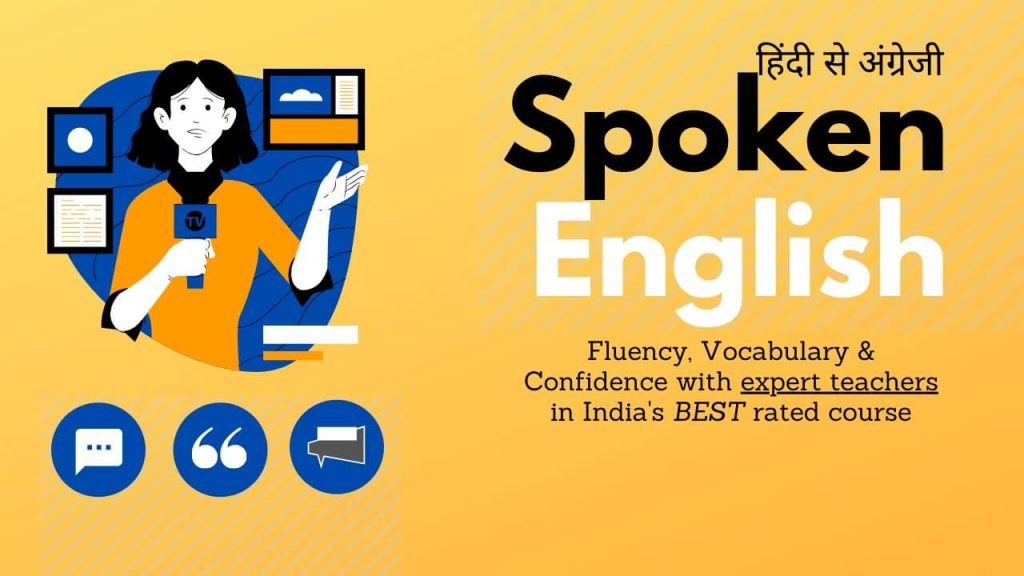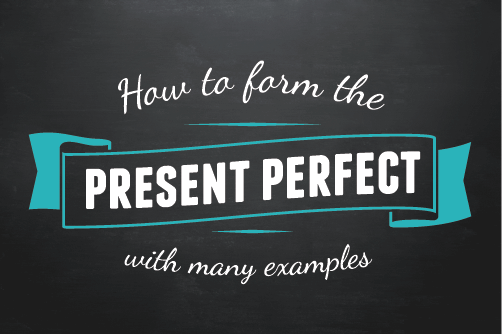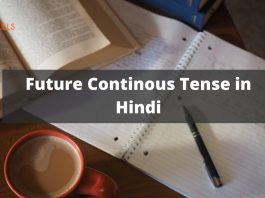
Is article mai hum aapko batayenge ke Present Perfect Tense in Hindi jise Poorn Vartaman Kaal bhi kaha jata hai wo kya hai aur ye English Grammar me kis tarha use kiya jata hai aur isko kis tarha se form kiya jata hai. Yani ke hum aapko iske structure ke baare mai batayenge, saath hi hum aapko is ke examples bhi batayenge jis ki help se aap Present Present Tense ko acche se samajh sake.
Is article ko dhyan se padhne ke baad aapko Present Perfect Tense in detail mai samajh aajayega. Aap ki understanding ko check karne ke liye hum aapko kuch exercises bhi denge jise karne se aap ko satisfaction aur confidence aa jayega ke aapne Present Perfect Tense acche se samajh liya aur seekh liya hai. Chaliye shuru karte hai.
Josh Skills App par Sikhe Fluent English Bolna
Definition of Present Perfect Tense In Hindi
Present Perfect Tense kya hota hai?
Present Perfect Tense us tense ko kaha jata hai jo describe karta hai us action ko jo past mai shuru hua tha aur present mai continue ho raha hai ya abhi complete hua hai. Ab aap jaan gaye hai ke Present Perfect Tense meaning in Hindi kya hai. Chaliye aage badhte hai.
Jaaniye Present Perfect Tense in Hindi konsi situations ya actions ko describe karne ke liye use hota hai?
- Jaise ke aapne definition of Present Perfect Tense mai dekha, ye woh tenses hote hai jo kisi action ya situation ko darshate hai jo past mai shuru hua hai aur present mai bhi continue ho raha hai.
Example: I have lived in India since 1995 ( = and I still do) – Mai 1995 se India mai reh raha hu (= ab bhi mai yahi hu).
Is sentence mai hume ye bataya ja raha hai ki mai 1995 se India me hi hu aur ab present mai bhi mai India mai hi hu. Yahan aap note kare ke ye action ya situation start hua hai 1995 aur ab bhi wo continue ho raha hai.
- Wo action jo perform hua hai kisi period mai aur ab bhi khatam nahi hua hai.
Example: She has been to the cinema twice this week (= and the week isn’t over yet). Usne is week mai do baar Cinema visit kiya hai (= aur ye week abhi khatam nahi hua hai).
Is sentence mai hume ye bataya ja raha hai ki usne is week mai cinema do baar visit kar liya hai lekin ye week abhi khatam nahi hua hai, iska matlab ye hai ke jab tak ke ye week end nahi ho jata, ye possibility rahegi ki wo cinema phir se visit kare week end hone se pehle.
- Repeated action jo past aur present ke beech mai hua ho aur wo period unspecified ho.
Example: We have visited Denmark several times. – Humne Denmark visit kiya hai kayi baar.
Is sentence mai bataya ja raha hai ke humne Denmark kayi baar to visit kiya hai hai lekin ye nahi bataya ja raha hai ke kab visit kiya hai.
- Action jo recent past mai complete hua ho aur hum use express karenge “just” word ke use ke saath.
Example: I have just finished my work.- Maine apna kaam abhi finish kiya hai.
- Ye wo actions hote hai jis mai time important nahi hota.
Example: He has read “War and Peace” (= the result of his reading is important). – Usne “War and Peace” padhi hai (= padhai ka result important hai).
Is sentence mai ye bataya ja raha hai ki action ka jo result hai wo important hai na ki time.
Ab hum jaan gaye hai ke Present Perfect Tense in Hindi ka use sentence mai kahan kiya jata hai. Ab aage badhte hai aur jaate hai ki Present Perfect Tense ko kis tarha form kiya jata hai.
Recognition, Formation, Usage And Examples Of Present Perfect Tense In Hindi
Koi bhi Verb ka Present Perfect do elements se banta hai, Auxiliary Verb ka appropriate form jo hai “to have” (Present Tense), aur main Verb ka Past Participle. Regular Verb ka Past Participle banta hai base + ed se. Jaise ke: played, arrived, looked etc.
Present Perfect Tense mainly three types ke sentences mai use hote hai. Aaiye dekhte hai wo kya hai.
- Present Perfect Affirmative Sentences
- Present Perfect Negative Sentences
- Present Perfect Interrogative Sentences
- Present Perfect Affirmative Sentence – Formation Aur Usage
Present Perfect Affirmative sentences ko Present Perfect Positive bhi kaha jata hai.
Inko form karne ka formula ya structure janiye:
Subject + have or has + past participle of Verb
Example:
- She has visited
- I have worked
- She has painted
- If / You / We / They have written
Important Points:
- Have / Has: Third person singular form change ho jayega “have” se “has” mai.
- Regular Past Participles ko form karne ke liye base form of Verbs mai -d or -ed lagaya jaye
- Irregular Past Participles ko yaad rakhne ki zarurat hai.
Affirmative form ke kuch short forms janiye: I’ve, You’ve, he’s etc. Present Perfect Tense ke saath hum aksar time expressions bhi use karte hai. Jaise ke: ever, never, before, yet, just, already, still, so far, up until now etc.
Hum do situations ko batane ke liye Present Perfect Affirmative form use karte hai. Aaiye dekhte hai wo kya hai.
- Past situations jinka result present mai aayega
- Finished actions jo refer karte hai ab tak ke life experiences ko.
Example:
Past situations jinka result present mai aayega:
- I have been lucky! – Mai lucky rahi.
- He has been born.- Usne janam liya
- We have had the same experience! – Hum ko same experience hua
Finished actions jo refer karte hai ab tak ke life experiences ko.
- I have talked to her four times – Maine usse four times baat ki hai
- This is the most incredible castle she has ever visited. – Ye sab se incredible castle hai unme se jinko usne abhi tak visit kiya hai
- It’s true that they have never travelled without their computer.- Ye sach hai ki unho ne kabhi apne computer ke bina travel nahi kiya hai.
2. Present Perfect Negative Sentence – Formation Aur usage
Present Perfect Negative Sentences ko form karne ka structure ye hai:
Subject + have/has + not + past participle
Example:
- I / You have not worked – Mai / Tum ne kaam nahi kiya
- He / She / It has not worked – Usne kaam nahi kya
- We / You / They have not worked. – Humne / Tumne / Unhone kaam nahi kiya
Important Points
- Agar subject hai – He, She, It ya koi singular Noun toh “has” use hoga aur “not” usko follow karega.
- Agar subject hai – They, We, I ya koi plural Noun to “have” use hoga aur “not” usko follow karega.
Negative form ke kuch short forms janiye: I haven’t, She hasn’t, They haven’t etc
Hum Present Perfect uske negative form mai kuch deny karne ke liye use karte hai. Aaiye dekhte hai wo situations konsi hai
- Past situations jinka result present mai aayega.
- Finished actions jo ab tak ke hone wale life experiences ko refer karte hai.
Example:
Past situations jinke results present mai aate hai
- I haven’t been lucky! – Mai lucky nahi rahi!
- He hasn’t been born. – Usne janam nahi liya
- We haven’t had the same experience! – Hum ko same experience nahi hua.
Finished actions jo ab tak ke life experiences ko refer karte hai
- I haven’t talked to her four times. – Maine usse four times baat nahi ki hai.
- She hasn’t visited this castle. – Usne ye castle visit nahi kiya hai
- It’s probable that they haven’t travelled without their computer. – Ye ho sakta hai ke unhone bina apne computer ke kabhi travel nahi kiya ho.
Negative- Interrogative Sentences
Negative sentences jo Present Perfect form mai hai inko convert kiya ja sakta hai negative interrogative form mai. Iske liye hume sentence ko start karna chahiye “why” se. Aaiye dekhte hai iske kuch examples.
- Why has she not given me her assurance? – Kyon usne mujhe apna assurance nahi diya?
- Why has it not done all the expected tasks? – Kyon saare expected tasks nahi kiye gaye?
- Why have they not given me a grand welcome? – Kyon unhone mujhe grand welcome nahi diya?
- Why has he not given his book to Ron? – Kyon usne apni book Ron ko nahi di?
- Why have the guests not eaten dinner? – Kyon guests ne apna dinner nahi khaya?
- Present Perfect Interrogative Sentence Formation Aur Usage
Interrogative Sentences me Verbs questions puchne ke liye use kiye jate hai.
Present Perfect Interrogative Sentences ko form karne ka Structure ye hai.
Have/has + Subject + Third form of the verb + Object
Example:
- Have I / you worked? – Kya maine / tumne kaam kiya?
- Has he / she / it worked? – Kya usne kaam kiya?
- Have we / you / they worked?- Kya humne / tumne / unhone kaam kiya?
Important Points
- In case, subject hai – he, she, it or a singular noun, to sentence start hoga ‘has’ se aur agar subject hai – we, they, I or a plural noun to sentence start hoga ‘have’ se.
Example:
- Has he eaten his dinner? – Kya usne uska dinner khaya?
- Have they given the reception? – Kya unhone reception diya hai?
- Has it performed as expected? – Kya wo perform kiya jaisa expected tha?
- Has she provided all the details? – Kya usne saare details provide kar diye?
- Has the car performed well on the road? – Kya car ne road par theek se perform kiya?
- Has the cat purred loudly? – Kya billi ne zor se purr kiya?
- Have we taken the necessary things? – Kya humne necessary cheezein leli?
- Have they conveyed their grievances? – Kya unhone apne grievances convey ki hai?
- Have I written all the questions? – Kya maine saare question likhe hai?
- Have the ministers visited their constituencies? – Kya ministers ne unki constituencies visit ki hai?
Interrogative – Negative Sentences
Interrogative sentences ko Interrogative Negative sentences mai bhi convert kiya ja sakta hai jaise ke negative sentences mai hum Auxiliary aur Main Verb ke beech “not” laga rahe they, usi tarha se hum isme bhi “not” laga sakte hai. Hum Present Perfect form mai hi sentence ko “why” se start kar sakte hai. Aaiye iske kuch examples dekhte hai.
- Has he not eaten his dinner? – Kya usne uska dinner nahi khaya?
- Why has he not eaten his dinner? – Kyon usne uska dinner nahi khaya?
- Why have they given the reception? – Kyon unhone reception diya hai?
- Why have they not given the reception? – Kyon unhone reception nahi diya hai?
- Why has she provided all the details? – Kyon usne saare details diye hai?
- Has the cat not purred loudly? – Kya billi ne zor se purr kiya hai?
- Why has the cat not purred loudly? – Kyon billi ne zor se purr nahi kiya?
Ab aap Present Perfect Tense in Hindi acche se samajh gaye honge. Isme aur perfection paane ke liye aap ko practice ki zarurat hai. Aap ki proper understanding aur confidence gain karne ke liye hum aapke liye laye hai kuch exercises based on Present Perfect Tense. Chaliye apni knowledge ko test karte hai.
Aapki jaankari ke liye hum aapko batade ke aap saare tenses ka ek brief introduction pa sakte hai is link par Sikhe Important English Grammar Tenses With Examples in Hindi
Exercises/Worksheet/Activities
Fill in the blanks, Exercises/Worksheets/Activities on Present Perfect Tense
Neeche diye gaye sentences ko diye gaye hint ki help se complete kariye. Aap ko Auxiliary Verb ya proper tense form use karna hai jisse aap isko present perfect form mai represent kare.
Apna progress verify kariye exercise ke end mai diye gaye answers ke saath.
1) They ___________submitted all the pending dues. (has)
2) I have __________ a letter to the management. (write)
3) She _________ given a lecture on biology. (has)
4) He has _________ all his assigned work. (do)
5) It _________ performed way over expectations. (has)
6) We _________ decided to contribute to the charity. (has)
7) I have _________ my book to a friend. (give)
8) They __________ a new car. (buy)
9) We have not _________ our vacation yet. (plan)
10) The teacher ________ five answer sheets. (check)
Answer- 1) have, 2) written, 3) has, 4) done, 5) has, 6) have, 7) given, 8) bought, 9) planned, 10) checked
MCQ Exercises/Worksheet/Activities on Present Perfect Tense
Diye gaye sentences ko proper tense or Auxiliary Verbs ki help se present perfect form mai complete kare. Exercise ke end mai diye gaye answers ki help se apna progress verify kariye.
1) I have _________ my friend for five years.
a) know
b) knew
c) known
2) You have __________ a good lecture on anatomy.
a) gave
b) given
c) give
3) She ________ borrowed the money from her teacher.
a) has
b) had
c) have
4) He has __________ all his duties well displaying loyalty.
a) perform
b) performing
c) performed
5) They have _________ the flight.
a) miss
b) missed
c) missing
6) He has not _________ up to expectations.
a) lived
b) living
c) live
7) The cat ________ all the milk.
a) drink
b) drinking
c) drank
8) _________ he eaten his dinner?
a) has
b) have
c) why
9) He has ________ to New York.
a) go
b) going
c) gone
10) They have ___________ the lecture carefully.
a) listen
b) listened
c) listening
Answers- 1) c, 2) b, 3) a, 4) c, 5) b, 6) a, 7) c, 8) a, 9) c, 10) b
True or False Exercises/Worksheet/Activities on Present Perfect Tense
Neeche diye gaye sentences mai aapko batana hai ke kya ye sentences Present Perfect Tense ko represent kar rahe hai? Sahi answer janiye exercise ke end mai aur apna progress verify kariye.
1) It have gave a false alarm.
2) He has done a good job.
3) She has provide all the necessary supplements.
4) She has given her consent for the function.
5) I have write a letter to the warden.
6) We has confirm our agreement to the authorities.
7) Mother cooked breakfast this morning.
8) He think of a plan to justify his fault.
9) My friend has cooked dinner for his family.
10) She submitted all the required papers.
Answer- 1) False, 2) True, 3) False, 4) True, 5) False, 6) False, 7) True, 8) False, 9) True, 10) False
Apne answers ko crosscheck kijiye neeche diye gaye correct answers se compare karke.
1) It has given a false alarm
3) She has provided all the necessary supplements.
5) I have written a letter to the warden.
6) We have confirmed our agreement to the authorities.
8) He has thought of a plan to justify his fault.
10) She has submitted all the required papers.
Conclusion
Is article ko padhne ke baad aap samajh gaye honge ke Present Perfect Tense in Hindi kya hai aur is ko kis tarha sentence mai use kiya jata hai, is ko kaise recognize karte hai aur kaise form karte hai structures ki help se. Aapki proper understanding ke liye examples aur exercises bhi diye hai taake aap Present Perfect Tense in Hindi mai perfect hosake.
Aise kayi informative articles jo ke English Grammar aur written and speaking skills par based hai wo hamari website joshtalks par diye gaye hai. English grammar sikhne ke liye bohot saare online courses available hai jisse aap ghar baithe apni basic English grammar improve kar sakte hai.
Join Josh Skills Spoken English Course
Judiye 20,000+ logo ko jo Josh ke saath English bolna aur padhna seekh rahe hai. Iss Spoken English Course ko aise design kiya gaya hai, ki koi bhi basic learner iss course se apne theoretical and practical grammar ko improve kar sakta hai. Everyday situations mei english ko kaise most effectively use kiya jaa sakta hai – iss par bhi extra dhyaan diya jaata hai.

Toh aaj hi shuru kare apni learning journey Josh Skills ke courses ke sath.







Behut useful article hai aap ki.. Kripaya aage bhee publish karte jaayiye